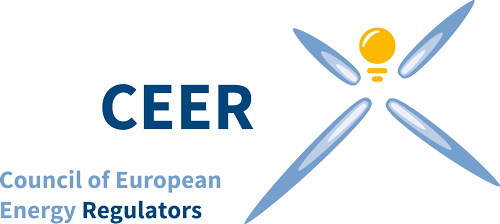| 3rd Package – what it means and when it takes effect
New laws, published in July 2009 (the so called 3rd Package), also establish the Agency for the Cooperation of Energy Regulators (ACER). The 3rd Package is a suite of five energy laws (comprising 2 Directives and 3 Regulations) which aims to put in place effective unbundling of vertically integrated energy utilities; support the further integration of the European energy markets and improve the general functioning of markets; facilitate the delivery of the massive energy investment that Europe crucially needs; and strengthen customer rights. One of the most important elements of the 3rd package is the creation of ACER, an EU Agency which will act in the consumer’s interest. The Electricity and Gas Regulations shall apply 18 months after their entry into force (i.e. March 2011). The Electricity and Gas Directives must be transposed into national law by the same date (with the exception of the rules on unbundling of transmission, which are to be transposed after 30 months, i.e. by March 2012). ACER (which will have its seat in Ljubljana, Slovenia) must be fully operational by March 2011.
ACER’s key role for the overall economy
Unlike several other sectors where the integration of national markets is useful but not a necessity, the integration of electricity and gas markets across Europe is critical. ACER will play a key role in facilitating the EU’s energy policy objectives of sustainability, competitiveness and security of supply. ACER will have a role in harmonising rules and will oversee network development plans that will encourage investment and thus enable more electricity and gas flows across borders and more new low carbon sources of energy to be connected. This is important not just for the energy sector but rather because energy fuels our economy. It is a basic necessity for the quality of life and is essential for our economic growth, international competitiveness and standard of living. ACER’s creation is a significant development.
What will ACER do?
This new Agency, funded from the EU budget and with a staff of about 45persons, will provide the new framework for cross-border regulatory cooperation. It has a central role in the process for developing EU-wide network codes, which regulators see as critical for a truly integrated-EU energy market. ACER will retain ERGEG’s current advisory role to the European Commission and extend it also to the other Community institutions. ACER has some decision-making powers, for example on technical issues, or on exemptions for third party access to interconnectors that cross more than one Member States. It has extensive monitoring powers. It will take over the work on regional integration being pursued through the Regional Initiatives and will monitor the regional cooperation by Transmission System Operators (TSOs) as well as the operation of their EU bodies, the European Networks of Transmission System Operators (ENTSOs). Its creation is a significant shift in energy regulation.
Developing from a voluntary regulatory cooperation to a formal Community structure
With ACER, the long established voluntary cooperation of national regulators moves up a gear as it will now take place within a Community structure. On 4-5 May the 27 national energy regulators of met (in Brussels) for the first time as ACER’s Board of Regulators. At this inaugural meeting, Lord Mogg (the current Chair of ERGEG and CEER) was elected Chair of ACER’s Board of Regulators and Walter Boltz its Vice Chair (see Press Release). Alberto Pototschnig was designated as Director of ACER (he will appear before the European Industry Committee on 1 June). The first wave of ACER’s staff recruitment has begun.
Head-start for ACER on 6 technical issues
Recognising that implementation of the measures in the 3rd package would take some time, ERGEG has already put in place an open and consultative process for developing Framework Guidelines which will guide the ENTSOs in drafting the EU-wide Network Codes. The process itself is being pilot-tested with specific projects so that ACER can learn from ERGEG’s experiences and introduce improvements when it is up and running in March 2011. ERGEG has already begun work (or will shortly do so) on Framework Guidelines in six areas - 3 in electricity (congestion management, operational security and transparency) and 3 in gas (gas capacity allocation mechanism; balancing rules and harmonised transmission tariff structures). Informal advice has also been given to the ENTSOs about the codes and the (non-binding) Community-wide 10 year network development plans. | 